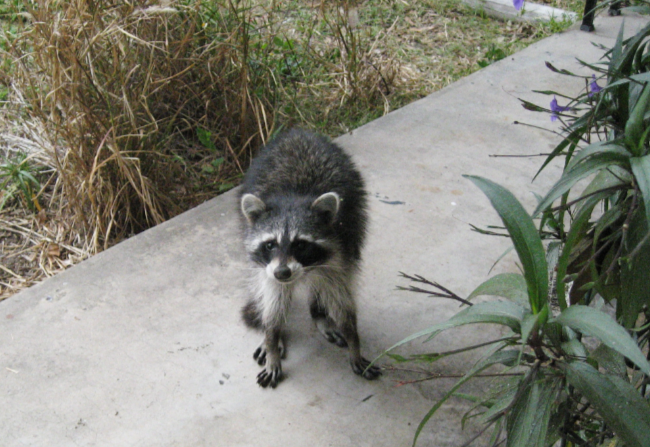Raccoon Diseases and the Danger they pose to Humans

The Raccoon is a wild animal that mostly habits North America and is one of nature’s most beautiful animals. This undomesticated animal is not meant to be a pet, however, some people keep them as pets. Raccoons require a large space to live as they can feel frustrated and encaged in smaller spaces. Still, this does not stop many people from keeping them as pets in small enclosures in their homes. Besides, they haven’t evolved to be domesticated, they are still wild and when left alone they tend to break things in the house.
Another reason why you should never keep a raccoon as your pet is that they are responsible for some very dangerous infectious diseases. If not taken care of promptly, these diseases can become fatal. That’s why you need to avoid raccoons as much as possible. A zoologist or zookeeper that must take care of animals including raccoons, need to have the proper equipment and clothing on. Everyone needs to take care of themselves as some raccoon diseases can be passed on to others, so it is better to be prepared and proactive.
Let’s look at a few of the dangerous raccoon diseases and the dangers they pose to human beings.
Raccoon Rabies
This disease is dangerous because it’s transmitted through the saliva of an infected raccoon. Most raccoons have rabies and when they attack human beings it can be transmitted to their bodies as well. Rabies cannot be transmitted by casual contact with the animal-like petting it. It will only be transferred if the animal saliva enters the body. Once the infection enters the body, the brain and everything else can be affected because this can destroy the nervous system which can damage.
Raccoon Roundworm
Another disease is the Raccoon Roundworm that us also dangerous for human beings. They usually get transmitted through infectious fluid from the raccoon’s body. These roundworms usually get transmitted in the form of larvae or eggs. After, the roundworm enters the body they get attached to different organs inside the body. Raccoon roundworms, or Baylisascaris, can affect every organ inside the human body which can be very dangerous and cause organ failure if not taken care of at the appropriate time.
Leptospirosis
This bacterial disease is spread through the urine of the raccoon. It can cause headaches, muscle pain, and fever but most significantly it can cause severe kidney and liver problems. Therefore, it is very important for humans to not just avoid contact with raccoons but their feces as well.
Also, these raccoons can carry many other infections and viruses which can be harmful to human beings. Some conditions in raccoons may not have a direct impact on humans but can surely have an indirect impact on our lives. If you have any pet cat or dog at home, they can also get a wide range of infections from raccoons which can in turn make your pet more aggressive. This can eventually be dangerous for you.

